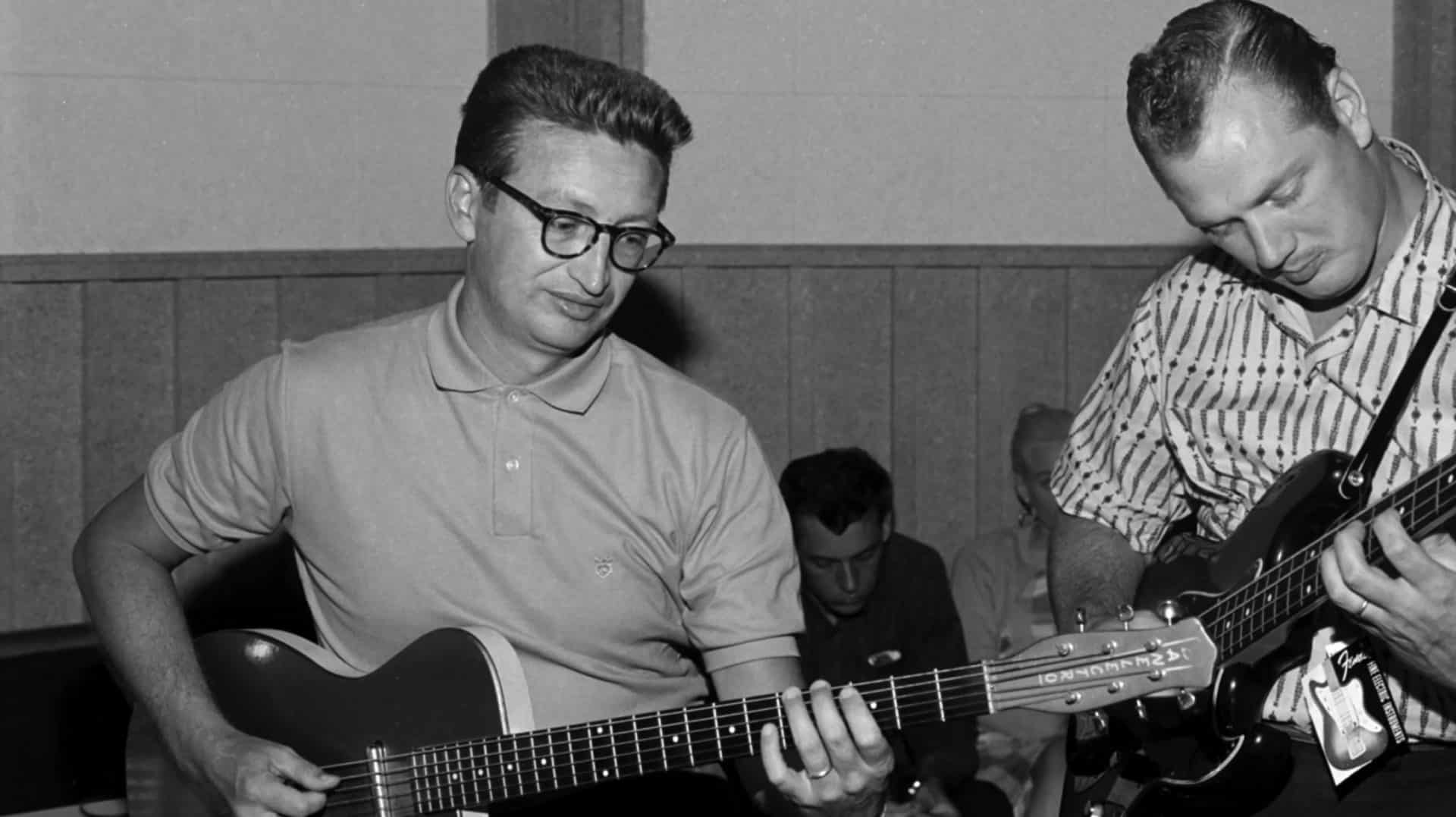
When Nashville A-Teamer Harold Bradley died at the age of 93 on January 31st, 2019, he left a legacy as one of the most recorded guitarists in music history. Bradley, his brother Owen, and Chet Atkins were crucial architects of the Nashville Sound in the 1960s, designing the famed RCA Studio A and presiding over sessions that produced some of the greatest music ever recorded. Known as “The Dean” of Nashville guitarists, Harold performed on recordings from Patsy Cline, Elvis Presley, Roger Miller, Loretta Lynn, Bob Dylan, Roy Orbison, Carl Perkins, and many, many more. On the anniversary of his passing, here are five songs that defined not only Harold Bradley but multiple legends.
1. “The Battle of New Orleans”, Johnny Horton (1959)
Bradley is primarily remembered as a rhythm and bass guitarist, but his first love was the banjo which he deftly wields on this Jimmy Driftwood-penned Johnny Horton hit that reached #1 in 1959.
2. “Walkin’ After Midnight”, Patsy Cline (1961)
There’s nothing not to love about Patsy Cline’s 1961 album Showcase. Patsy’s first recordings after a near-death car accident, the album delivers some of her best– “I Fall To Pieces”, “Crazy”, and a retooling of “Walkin’ After Midnight” that exemplifies Harold Bradley’s signature tic-tac bass guitar.
3. “Crying”, Roy Orbison (1962)
Lead guitarists get the glory, but Bradley’s rhythm work on this essential Roy Orbison cut is iconic. When I’m maudlin with a J-45 in my arms, “Crying” is a go-to and it’s Harold’s heartbeat strumming that gets me to the other side.
4. “(You’re The) Devil In Disguise”, Elvis Presley (1963)
Elvis fans were hip to send this one to #3 on the Billboard charts in 1963, but I’ll submit that Harold Bradley’s Danelectro 6-string bass bent to perfection is a key reason why.
5. “As Time Goes By”, Harold Bradley (1966)
This particular song is a personal favorite– Casablanca is a top-fiver & my wife walked down the aisle to Dooley Wilson’s version. Clean-toned and dreamy, Bradley’s technique is superb on this solo outing from ’66 that contains mostly standards with a full complement of strings and magic.